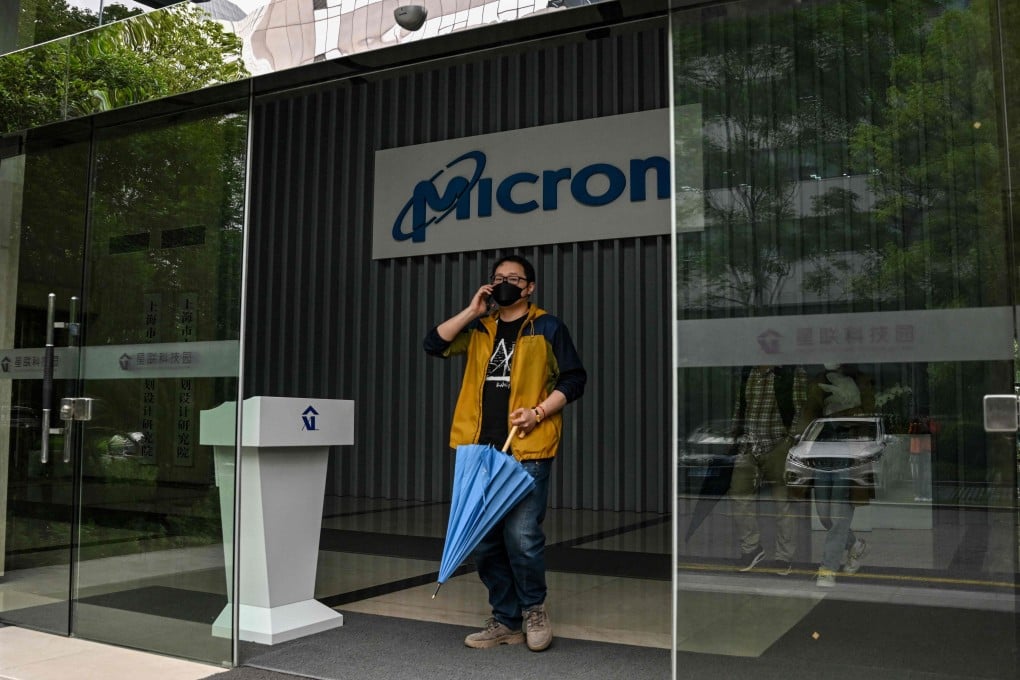Timeline: how Micron went from China business partner to the target of a national cybersecurity probe
- With an investment of US$250m and about 2,000 employees, Micron’s Xian factory in western China was its first in the country and its second in Asia
- In 2022, Micron said it would close its DRAM design centre in Shanghai and offered to relocate some of the 150 Chinese engineers

The Chinese government on Sunday banned the sale of certain Micron Technology products to key information infrastructure operators in the country, citing “cybersecurity risks”, in Beijing’s most forceful retaliation in the Sino-US tech war.
The following timeline highlights Micron’s key developments since its entry into China over two decades ago, and shows how the US company went from a welcome business partner to a target of Beijing’s national security investigation.
2001
Micron Technology, founded in 1978 and headquartered in Boise, Idaho, entered the Chinese market – the same year China officially joined the World Trade Organization – to serve its growing customer base in the country as multinational businesses rushed to set up manufacturing facilities.
Micron’s first office was in Xiamen, a coastal city in southeastern Fujian province, and one of China’s special economic zones.
2004
Micron expanded its China operations and set up a company in Shanghai with about 60 employees. It also opened branch offices in Beijing and Shenzhen to provide corporate, sales and marketing services.
